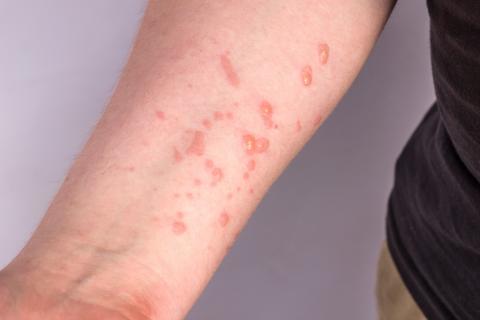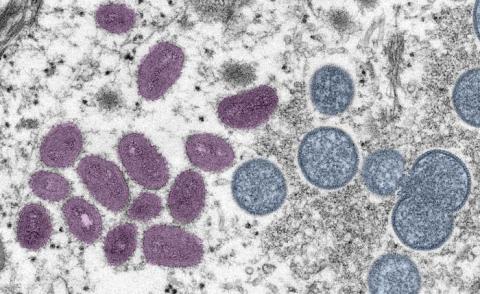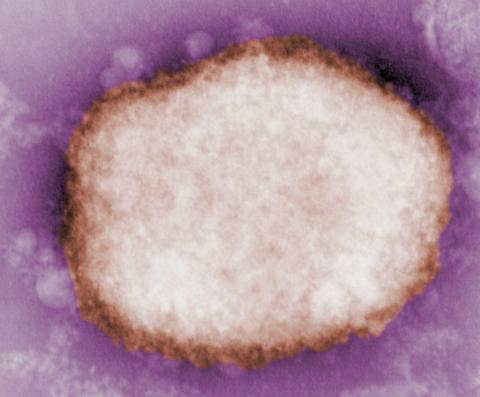Reactions: Monkeypox declared an international emergency by WHO
Today the World Health Organisation declared smallpox a Public Health Emergency of International Concern. The move was announced at a press conference by its director general, Tedros Adhanom, despite a lack of consensus in the International Health Regulations Emergency Committee.
Jacob Lorenzo-Morales - Emergencia viruela mono EN
Jacob Lorenzo-Morales
Professor of Parasitology, Director of the University Institute of Tropical Diseases and Public Health of the Canary Islands of the University of La Laguna and CIBERINFEC researcher
The declaration of an international emergency is necessary to increase coordination between countries and to implement measures to control the circulation of this virus on an international scale, as well as to improve active case tracking. In the current situation it is a very appropriate and necessary response.
The decision has come sadly late, even though we initially saw that human-to-human transmission seemed to be a fact that would be resolved in a few weeks. In fact, the increase in cases already made the WHO tremble at the end of June and it was decided to wait, despite warnings from the scientific community that these monkeypox outbreaks were not showing similar behaviour to those in the past.
On the one hand, attempts were made to educate the population on how to avoid infecting themselves or others, health professionals have been confronted with an unexpected number of cases, and most countries are likely to have more cases than detected. Effective tracing has failed as most of those affected have either not been able to identify their close contacts or, probably to protect their privacy, have refused to do so.
Finally, prophylactic measures (vaccination) in the most affected population group are arriving late and out of sync.
Let us hope that this declaration of international alert will allow countries to act in a coordinated and effective manner.
Mar Faraco - viruela mono emergencia OMS EN
Mar Faraco
Former president and current secretary of the Association of Foreign Medical Doctors (AMSE) and head of the Servicio de Sanidad Exterior in Huelva
In my opinion, the current course of monkeypox in the world meets the definition of a Public Health Emergency of International Concern (PHEIC), so this official declaration is appropriate and necessary.
According to the International Health Regulations (2005) - IHR (2005), a Public Health Emergency of International Concern (PHEIC) is declared for extraordinary events in one territory that already constitute a risk to the public health of other States due to the international spread of a disease, and require a coordinated international response.
It is declared in cases of "severe, sudden, unusual or unexpected" disease that has public health implications beyond the affected State; and which may require immediate international action.
From the first seven cases (in the UK in May 2022, unexpected both because of their number in a few days and the lack of history of travel to any country where the disease was known to exist), to now, the spread of the disease is definitely "severe, sudden, unusual and unexpected".
With already more than 14,000 known cases, with all regions of the world affected (of a disease that was only known in Africa), and with transmission established autochthonously in areas never endemic, the declaration of PHEIC is a fundamental tool to officially give this situation the importance it deserves. This declaration leads to better coordinated surveillance measures, response actions and responsibilities at the global level, which is already clearly a necessity.
Javier Membrillo - viruela mono emergencia OMS EN
F. Javier Membrillo de Novales
Vice-president and spokesperson of the Spanish Society of Infectious Diseases and Clinical Microbiology (SEIMC) and coordinator of the SEIMC Mpox Working Group
The declaration of a Public Health Emergency of International Concern by the WHO comes at the right time. It comes at a time when it is clear that national control measures are not sufficient, that information to the population does not interrupt risk practices, that chains of transmission are being established not only linked to sexual practices, with intra-family contagion, even of children, and at a time when we see that access to vaccines and antiviral treatments is not universal. Not only is it not universal in developing countries, but also in countries such as Spain, where antivirals such as Tecovirimat are very limited, running out, and third generation vaccine doses are scarce and are not allowing a more ambitious vaccination plan for the at-risk population to be carried out.
What does the declaration mean? It means that international measures can be taken that should facilitate, above all, access to these vaccines and antiviral treatments by all countries. In our case, probably, to facilitate cooperation between European countries to distribute to those in greatest need.
Pablo Fernández - viruela del mono emergencia OMS EN
Pablo Fernández
Dermatologist at the Hospital Ramón y Cajal and Master in Tropical Medicine at the Universidad Autónoma de Madrid, member and one of the spokespersons of the Spanish Academy of Dermatology and Venereology (AEDV) for monkeypox
The current epidemic outbreak of monkeypox is an unprecedented situation to date, although for some time now there has been talk in tropical medicine forums that an epidemic could occur in our environment.
From a dermatological point of view, it is a pathology that is relatively easy to recognise, because the lesions are very characteristic and the disease is following a very similar pattern in most cases. But in order to be able to diagnose a dermatological pathology, it is necessary to know it beforehand. This is why it is so important for health professionals to be aware of this disease.
The fact that it is a mild disease, limited to a few population groups and initially (but no longer) not very widespread, gives us clinicians and public health specialists the opportunity to control this outbreak in a more satisfactory way. From my point of view, the fact that the WHO has finally declared the outbreak an international health emergency is positive news because it gives visibility to the problem, allows us to pool knowledge and focus efforts and resources on its control. It is now that we must act so that this virus does not get out of control.



